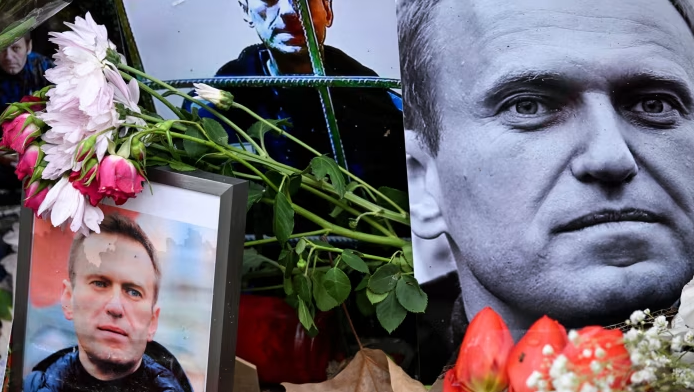More than 40 nations have united in a resounding call for an independent international investigation into the untimely passing of Russian opposition figure Alexei Navalny. At the U.N. Human Rights Council session in Geneva, an EU ambassador voiced the collective demand on behalf of all 27 EU member states, joined by 16 other nations including the U.S., U.K., and Ukraine.
Expressing profound dismay, the joint statement squarely pointed fingers at President Putin and Russian authorities for Navalny’s demise. “We are outraged by the death of the Russian opposition politician Alexei Navalny, for which the ultimate responsibility lies with President Putin and the Russian authorities,” the statement asserted. “Russia must allow an independent and transparent international investigation into circumstances of his sudden death.”
However, Moscow has steadfastly rebuffed calls for such an investigation, vehemently denying any involvement in Navalny’s demise last month while in confinement at an Arctic penal colony. Navalny, known for his vocal criticism of the Kremlin, was incarcerated on charges widely perceived as politically motivated. During his detention, he was allegedly denied adequate medical treatment and endured over 300 days in solitary confinement.
Associates of Navalny have speculated that his death occurred as part of a potential prisoner exchange, with the Kremlin possibly aiming for advantageous terms in a future swap.
While an official Russian inquiry has concluded Navalny’s demise resulted from “natural causes,” his widow, Yulia Navalnaya, has directly accused Putin of orchestrating his murder.
Navalny’s health had worsened during his three-year imprisonment, during which he alleged denial of medical care and endured nearly 300 days in solitary confinement. He had previously spent months recuperating from a nerve agent assault before his January 2021 arrest.
Nevertheless, he seemed to be in decent spirits and health in a courtroom video released just a day before his demise.
International sentiment does not align with Russia’s narrative regarding Navalny’s circumstances at IK-3, also known as “Polar Wolf,” one of the country’s most remote and severe penitentiaries.



